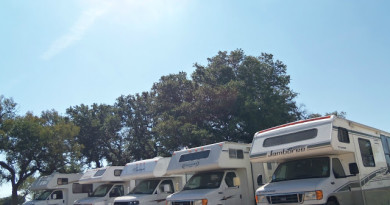Tax Free Weekend: August 9-11, 2024

The Comptroller encourages all taxpayers to support Texas businesses while saving money on tax-free purchases of most clothing, footwear, school supplies and backpacks (sold for less than $100) during the annual Tax-Free weekend. Qualifying items can be purchased tax-free from a Texas store or from an online or catalog seller doing business in Texas. In most cases, you do not need to give the seller an exemption certificate to buy qualifying items tax-free.
This year’s sales tax holiday begins Friday, Aug. 9, and goes through midnight Sunday, Aug. 11.
The sales tax exemption applies only to qualifying items you buy during the sales tax holiday. Items you buy before or after the sales tax holiday do not qualify for exemption, and there is no tax refund available.
Qualifying Items
During the sales tax holiday, you can buy most footwear and clothing (sold for less than $100) tax-free. You do not need to give the seller an exemption certificate. The exemption applies to each eligible item sold for less than $100, and there is no limit to the number of qualifying items you can buy.
During the sales tax holiday, student backpacks sold for less than $100 are exempt from tax. The exemption includes backpacks with wheels and messenger bags. You can buy up to 10 backpacks tax-free at one time without giving an exemption certificate to the seller. Only specific school supplies sold for less than $100 qualify for the exemption and an exemption certificate is not required.
Items That Do Not Qualify
The following items do not qualify for exemption during the sales tax holiday:
- items sold for $100 or more
- clothing subscription boxes
- specially-designed athletic activity or protective-use clothing or footwear
- For example, golf cleats and football pads are usually worn only when people play golf or football, so they do not qualify for the exemption.
- Tennis shoes, jogging suits and swimsuits, however, can be worn for other than athletic activity and qualify for the exemption.
- clothing or footwear rentals, alterations (including embroidery) and cleaning services
- items used to make or repair clothing, such as fabric, thread, yarn, buttons, snaps, hooks and zippers
- jewelry, handbags, purses, briefcases, luggage, umbrellas, wallets, watches and other accessories
- computers
- software
- textbooks
- certain baggage items (see below)
- unspecified school supplies (see below)
For additional information about the upcoming sales tax holiday see Rule 3.365, Sales Tax Holiday – Clothing, Shoes and School Supplies.
Baggage Items That Do Not Qualify
The following items do not qualify for this exemption:
- framed backpacks
- luggage
- briefcases
- athletic, duffle or gym bags
- computer bags
- purses
Online Purchases and Telephone Orders
During the holiday, you can buy qualifying items in-store, online, by telephone, mail, custom order, or any other means. The sale of the item must take place during the specific period. The purchase date is easy to determine when the purchase is made in-store but becomes more complicated with remote purchases. The purchaser must have given the consideration for the item during the period even if the item may not be delivered until after the period is over.
For example, if a purchaser enters their credit card information in an online shopping website on Sunday Aug. 11, 2024 at 5:00 p.m.to purchase qualifying school supplies, but the school supplies will not be shipped until Friday Aug. 16, 2024 and will not arrive until Tuesday Aug. 20, the purchase will still qualify for the exemption. However, if the charge to your credit card is declined by the payment processor at 11:00 p.m. on Sunday Aug. 11, 2024 and the purchaser does not resubmit payment until Monday Aug. 12, the purchase is taxable.
Additional Charges Affect the Sales Price
Delivery, Shipping, Handling and Transportation Charges
Delivery, shipping, handling and transportation charges by the seller are part of the item’s sales price.
Since clothing, backpacks and school supplies have to be less than $100 to qualify, you have to look at the item’s total sales price to determine if you can buy it tax free.
For example, you buy a pair of jeans for $95 with a $10 delivery charge for a total price of $105. Because the jeans’ total price is more than $100, tax is due on the entire $105 price.
If a delivery charge is billed per item, and an invoice has both exempt and taxable items, only the qualifying exempt item’s delivery charge is exempt.
If the delivery charge is a flat rate per package, and the amount charged is the same regardless of how many items are included in the package, the total charge can be attributed to any one of the items in the package.
Copy courtesy of the Texas Comptroller’s Office. For complete details, visit https://comptroller.texas.gov/taxes/publications/98-490.
Click here to access the 2024-2025 RRISD School Calendar


